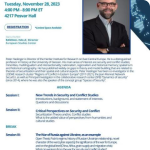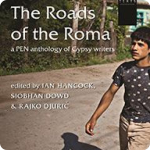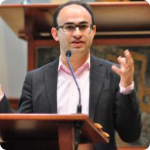Past Events

- 4217 Posvar Hall
Peter Haslinger is Director of the Herder Institute for Research on East Central Europe. He is a distinguished professor in history at the University of Giessen. His main areas of interest are security and conflict studies; minorities, multilingualism and intersectionality; nationalism, regionalism and historical memory; spatial turn and historical cartography. He has published widely on gaps in theory and model building that are related to theories of secularization and their spatial and cultural aspects. Peter Haslinger has been co-investigator in the LOEWE research cluster "Regions of Conflict in Eastern Europe" (2017-2021), the Jean Monnet Network SecurEU, as well as Principal Investigator in the collaborative research center (SFB) "Dynamics of security" (since 2014), where he was also the speaker of the concept group "Spaces of Security."
Agenda
Session I: New Trends in Security and Conflict Studies--Introductions, background, and statement of interests. Questions and discussions.
Session II: Critical Perspectives on Security and Conflict--Securitization Theory and/vs. Conflict studies. What is the added value of perspectives from humanities and cultural studies.
Session III: The War of Russia against Ukraine, as an example--Open Thesis: Putin's regime, history of Russian-Ukrainian relationship, novel character of the war (cyber aspects), the significance of war for Europe, and on the global level (China, Africa, grain supply and migration crisis). What can we learn from the war for security and conflict studies?
Session IV: Final Discussion and Wrap Up.
Facilitated by Randall Halle, Director, European Studies Center.

- Rob Mucklo
- Global Hub

- Rob Mucklo
- Global Hub

- Rob Mucklo
- Global Hub

- Rob Mucklo
- Global Hub

- Dr. Lea Horvat, Dr. Snezana Stankovic, Dr. Ana Sekulic
- Zoom
Kapka Kassabova's writing eschews a narrow register of academic writing and explores different chronotypes of nourishment, from the "Red Riviera" of the Black Sea coast to the interconnected lakes Ohrid and Prespa and the valley of the river Mesta, abundant with local practices of healing. Join us for a discussion about situated, in-depth histories of well-being, care, and nourishment as we collectively contemplate the potential of the Balkans as a space of nourishment. This lecture is the keynote address of "The Balkans as A Place of Nourishment" Conference, which is taking place November 16th-18th in Jena, Germany. This conference explores the region's rich history as a space and idea of nourishment, whether of plants and land, non-human and animals and human relationships, or collective solidarity in challenging surroundings that often receive little attention, whether in scholarship or in public. The conference espouses theoretical approaches that highlight attention to compassion, healing, and eco-restorative practices of companionship.

- Dr. Sunnie Rucker-Chang
- Zoom and 4217/4130 Posvar Hall
In the second installment of the Global Issues Through Literature Series (GILS), educators will convent to discuss The Roads of the Roma: A PEN Anthology of Gypsy Writers. This year's theme is: Marginalized Voices in Global Context: Centering Overlooked Narratives in Literature This reading group for K-16 educators explores literary texts from a global perspective. Content specialists present the work and its context, and participants brainstorm innovative pedagogical practices for incorporating the text and its themes into the curriculum. Sessions this year will take place in a hybrid format, with virtual and in-person discussions taking place on Thursday evenings from 5-8 PM (EST). A copy of the book and 3 Act 48 credit hours are provided for each session.

- Rob Mucklo
- Global Hub

- Dr. Viktoria Batista
- Braun Room, 12th floor, Cathedral of Learning

- Zoom Webinar

- Sasha Senderovich (University of Washington in Seattle)
- William Pitt Union, Room 548
Sasha Senderovich will discuss his new book, "How the Soviet Jew Was Made", which offers a close reading of postrevolutionary Yiddish and Russian-language literature and film that recasts the Soviet Jew as a novel cultural figure: an ambivalent character navigating between the Jewish past and Bolshevik modernity. Senderovich urges us to see the Soviet Jew anew, as not only a member of a minority group, but also a particular kind of liminal being.

- Molly McSweeney
- Global Hub
Are you looking to gain experience that will help prepare you for a globally-connected job market? Stop by Drop-In Hours to learn more about getting the Global Distinction added to your academic transcript, receiving special recognition at graduation, and standing out to prospective employers! Fall 2023 Global Distinction Drop-In Hours: Tuesdays at 3:30-4:30 pm, except on November 21.

- Rob Mucklo
- Global Hub

- Zoom Webinar
It is 60 years since the signing of the Yaoundé Convention (1963). This was a moment in the history of decolonization when the Associated African States, 12 mainly young postcolonial Western African countries, signed a trade agreement with the also young European Economic Community. The Yaoundé Convention was part of the EEC’s Eurafrica initiative, an effort to maintain a presence in the former colonies. Yaoundé initiated a series of trade and aid agreements that replaced the colonial relation with a developmental model. An era of trade and infrastructural development followed. However, many critics have suggested that this strategy of aid set off a pattern of uneven and unequal development.
This Conversation on Europe and Africa takes this event as an opportunity to consider development aid in Africa historically and in its contemporary form. Our panelists bring a mix of historical and regional knowledge to the conversation, including Mounir Saidani from CERES in Tunis.
Although Tunisia was not part of the Yaoundé convention, it is at the center of controversial aid discussions: European Commission President Ursula von der Leyen's recent visit to Tunis as part of a deal of aid for migration "control” left many critics concerned about this new turn in EU-Africa relations.
Moderator:
Randall Halle, University of Pittsburgh
Panelists:
Mounir Saidani, Editor in Chief of Omran Social Sciences Periodical issued by Arabb Center for Research and Political Studies- Doha
Pernille Røge, University of Pittsburgh
Michael Odijie, Univeristy College London
Abdou Seck, Gaston Berger University, Groupe D’Action et D’Etude Critique Africa (GAEC)

- Zoom Webinar
- ‹ previous
- 19 of 46
- next ›
